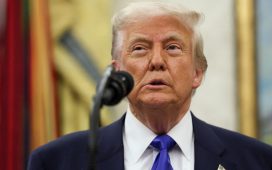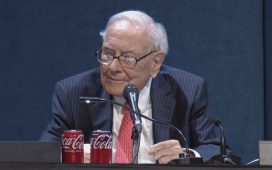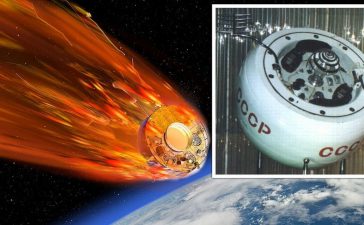
Nikola founder Trevor Milton was sentenced Monday to four years in prison in connection to defrauding investors of the embattled electric- and hydrogen-powered truck maker.
Milton also was fined $1 million and could later be forced to forfeit property as part of his sentence.
The punishment was far lower than the 11 years prosecutors had requested at Milton’s sentencing in U.S. District Court in Manhattan.
But it was substantially more than the non-jail sentence of probation sought by Milton’s attorneys.
“I did not intend to harm anyone and I did not commit those crimes levied against me,” Milton told Judge Edgar Ramos before being sentenced, Reuters reported.
Milton has shown little to no remorse for his actions, prosecutors said. In a letter to Ramos on Sunday, prosecutors wrote that the judge should take into account Milton’s “profound denial of accountability and insistence on blaming others.”
Trevor Milton, founder of Nikola Corp., exits court in New York, US, on Monday, Sept. 12, 2022.
Stephen Yang | Bloomberg | Getty Images
Milton was convicted in October 2022 on two counts of wire fraud and one count of securities fraud. He had faced a recommended sentence of 60 years in prison under federal sentencing guidelines for those crimes.
Restitution will be determined at a future proceeding, according to the U.S. Attorney’s Office for the Southern District of New York
“Trevor Milton lied to investors again and again — on social media, on television, on podcasts, and in print. But today’s sentence should be a warning to start-up founders and corporate executives everywhere — ‘fake it till you make it’ is not an excuse for fraud, and if you mislead your investors, you will pay a stiff price,” Damian Williams, U.S. attorney for the Southern District of New York, said in a statement.
Milton became an overnight billionaire when he took Nikola public through a deal with a special purpose acquisition company in June 2020. The company was quickly considered to be one of the most promising EV startups – valued at its peak at more than $30 billion – until allegations regarding false and misleading statements were uncovered by short-seller Hindenburg Research.
Prosecutors compared Milton to disgraced Theranos founder Elizabeth Holmes, who was sentenced to more than 11 years in prison last year for defrauding investors in her blood-testing startup.
“Just as Holmes lied about Theranos-manufactured blood analyzers, Milton lied about the operability of the Nikola One semitruck,” prosecutors wrote to Ramos ahead of the sentencing.
CEO and founder of U.S. Nikola, Trevor Milton speaks during presentation of its new full-electric and hydrogen fuel-cell battery trucks in partnership with CNH Industrial, at an event in Turin, Italy December 2, 2019.
Massimo Pinca | Reuters
Milton has attempted to distinguish himself from Holmes, whose company was private. His lawyers argued “that Nikola is still a real business, while Theranos is not,” according to court documents.
Milton, who was the company’s largest shareholder, stepped down as executive chairman of Nikola in September 2020. He did so amid an internal probe after the Hindenburg report, which characterized the company as a house of cards built by Milton.
Since Milton’s resignation, shares of Nikola have crated and the company has failed to retain executives. Nikola Chairman Stephen Girsky, whose SPAC brought the company public, was named CEO in August.
Shares of Nikola have recently traded under $1, with a market value of about $327 million. The stock was down by roughly 6% following Milton’s sentencing.
Nikola was among the first heavily publicized companies to go public through a SPAC. It inspired hundreds of other startups to do the same before the Securities and Exchange Commission cracked down on the practice.
Prosecutors said the SPAC process, rather than a traditional IPO, allowed Milton to make many of the misleading or fraudulent statements. Under the IPO process, he would have not been allowed to make public statements during the time around the company going public.
SPACs are publicly traded companies that don’t have any real assets other than cash. They are formed as investment vehicles with the sole purpose of raising funds and then finding and merging with a privately held company.











